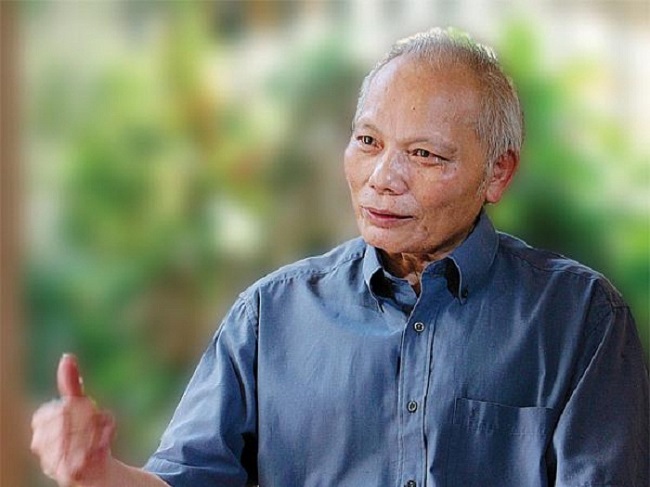Vietnam turns semiconductor vision into action
The global semiconductor industry is being reshaped by geopolitical tensions, shifting supply chains, and the surge of digital technologies.




A pair of Nike shoes are priced at more than $100, even $300, but the Vietnamese share is less than $10.

Nike is known as a symbol of the global supply chain. From design ideas to shoe parts, which are all produced in different countries, the final products will follow the distribution system to every corner of the world.
However, Prof. Dr. Nguyen Mai, Chairman of the Association of Foreign Investment Enterprises, said that even though a pair of made-in-Vietnam Nike shoes were priced more than $100, even $300, the Vietnamese share is only less than $10.
From this example, Mai pointed out that despite Vietnam’s high export turnover, the contribution was mainly from the FDI sector (more than 70%), while the participation of enterprises Vietnam was still insufficient.
In particular, Vietnam's textile and footwear sectors are considered the most productive among countries exporting these two product lines, but Vietnamese enterprises are mainly engaged in the low-value level in the global supply chain.
For instance, Vietnam's textile and garment industry is mainly engaged in cutting and sewing in simple methods. The industry, hence, still cannot offer various services in the manufacturing process, so the added value is still low. It is even heavily dependent on imported raw materials.
Another example is the motorcycle industry. Vietnam has become one of the world's largest motorcycle manufacturers with 3.2 - 3.5 million motorcycles per year. Although 80% of parts and accessories are locally produced, most of them are made by FDI enterprises. Domestic enterprises can only produce plastic parts.
At present, in Vietnam, micro, small and medium enterprises account for over 97% of nearly 600,000 enterprises. The remainder of nearly 3% are large enterprises.
Regarding the relationship between these kinds of enterprises through the value chain model, experts say that large firms are the primary drivers while small and medium enterprises play a supporting role by creating added values.
With the increasing and robust participation of FDI enterprises in Vietnam, promoting Vietnamese enterprises, especially small and medium ones, to the higher levels in the supply chain is necessary.
However, Bui Thu Thuy, Deputy Director General of the Enterprise Development Agency (under the Ministry of Planning and Investment), said that the linkage between transnational corporations and Vietnamese companies in the supply chain was still limited.

To promote cooperation between domestic firms and the FDI sector, experts say that Vietnam needs to come up with new strategic solutions and approaches.
According to Prof. Nguyen Mai, the State should continue such policies as reducing investment and business costs, reducing corporate income tax, restructuring the logistics system, and reforming administrative procedures.
In particular, the Government should set up institutions and policies suitable for each type of enterprise, which helps increase both the quantity and quality of businesses.
Besides, the State should encourage the linkage between FDI enterprises and domestic ones such as offering tax and financial incentives.
Regarding local businesses, Mai said that they needed to invest in technology innovation, improve the workforce quality, create business strategies, increase the productivity and competitiveness in the context of deeper integration.
The global semiconductor industry is being reshaped by geopolitical tensions, shifting supply chains, and the surge of digital technologies.
The change in APA approval authority is expected to shorten processing time and enhance business proactiveness in international tax negotiations.
As hybrid cloud systems grow more complex, Vietnamese enterprises are struggling to detect cybersecurity threats moving laterally within their own networks.
The submission of the draft resolution on Vietnam’s international financial center to the National Assembly heralds a new developmental era for the country.
More than just running a 5-star resort, Kristian Petersen is redefining the art of hospitality with a humane and sustainable leadership philosophy.
For Tyna Huynh, co-founder of Drinkizz, organic is not just a food choice but a way of life that fosters a deep connection between people, nature and community.